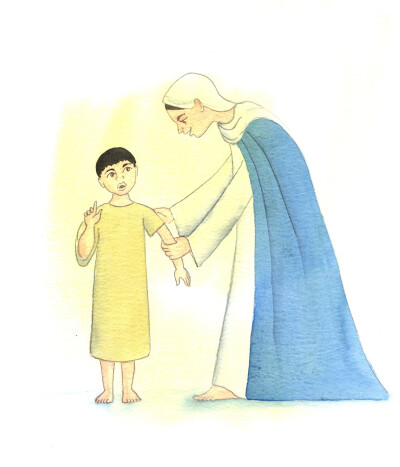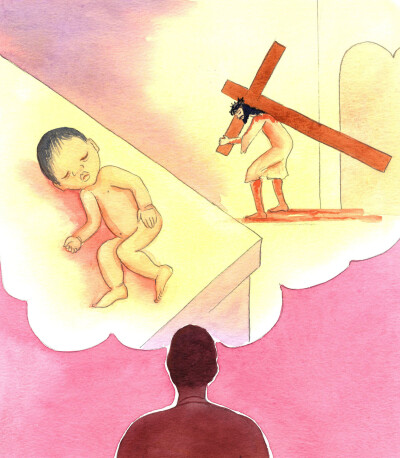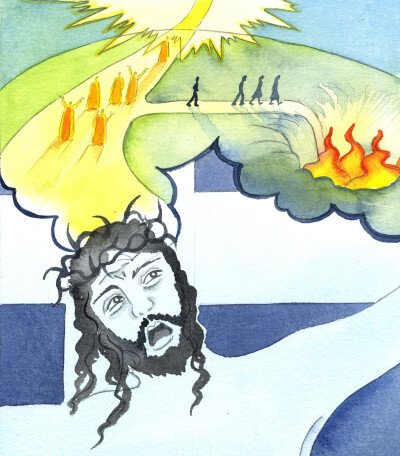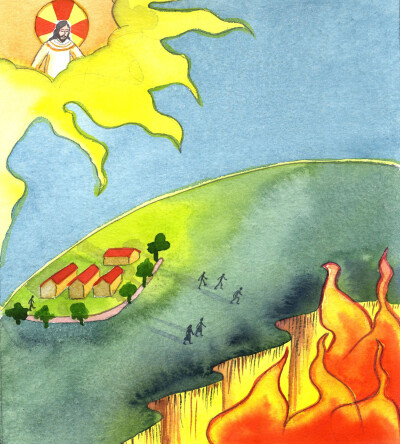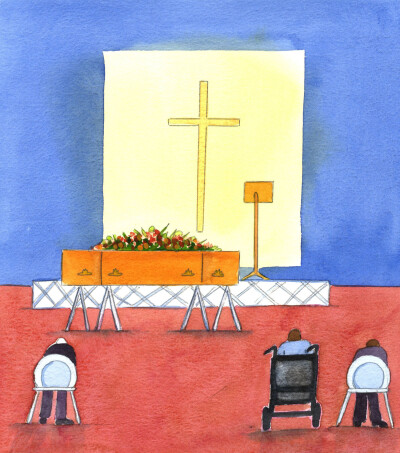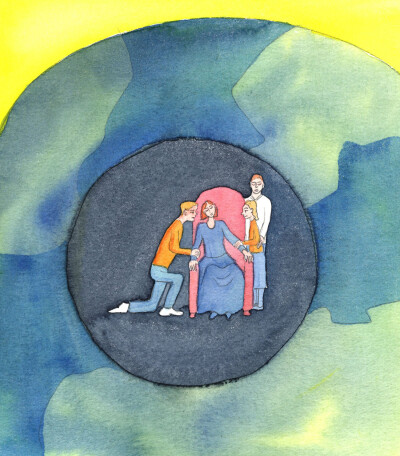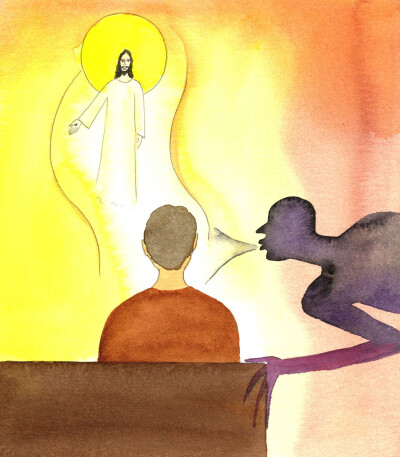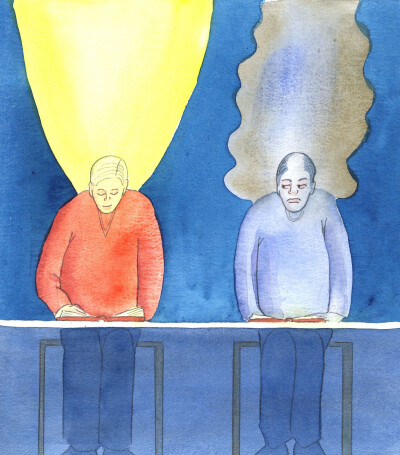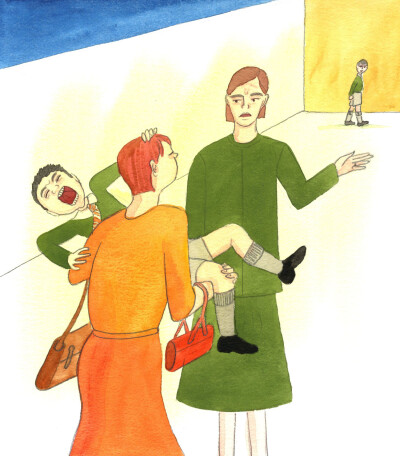Search Page
Showing 41 - 60 of 100
Jesus Christ was aware of His own Origin and Divine nature throughout His whole life on earth. Though He took a human nature to Himself and lived as a little boy in our world, He did not have to be told His purpose in life. About all these things, He had Divine knowledge and implicit human knowledge, as a boy, though He had to learn how to put it into words.
We give great joy to Christ when we obey his wishes, whether His inspirations in prayer or the teachings of the Church; He even praises the Father for the good He sees in us. Christ knows that by our good thoughts, words and deeds we become more like Christ, and give glory to the Father.
Our Blessed Lady and Saint John were with Christ in His Passion not only to comfort Him by their presence. It was part of the Father's plan that they should be witnesses to Christ's last hours in order to share with all who love Him the last words He uttered, and the complete 'picture' of His dying and death.
If we reflect, we will remember that Christ was an innocent victim, in a long-ago earthly life. Innocent victims of abortion today deserve, of us, fervent prayer and brave words, so that Christ, by His almighty power, will banish this barbaric practice.
In a story, a kind king told His children that He would give them every advantage, and make them very happy, but they must learn to take responsibility for their behaviour. He said: When you are grown-up, and if you deliberately do grave wrong, you will go to prison. They all agreed that the king's words are wise and just. And so it is, with the warnings given to us by Jesus Christ our God and King, about persistant grave sin, and Hell.
Christ is overjoyed by those who love and obey Him. One of the worst experiences of Christ's Passion, as He hung on the Cross, was the sight He saw - by His Divine insight - of those who would take no notice of His words, or of His desire to save them. His heartache was indescribable, as He saw souls walking away, towards damnation, through their own choices.
It is a terrible sight for Christ to see, from Heaven, as people walk resolutely towards the flames of Hell: people who have refused to listen to His wise words about repentance and transformation: people who will be separated from Him eternally, through their own fault, if they do not repent of their sins before they die.
When we can no longer sit up to pray, in sickness or exhaustion, we can be sure that Christ is supporting us in His embrace, as we offer a few words of praise and thanks to our Heavenly Father.
The Church is like an ocean-liner, launched by Christ. He sees that many people on board argue about the purpose of the ship, minimise the danger of travelling independently, and pour scorn on the dangers of the water. By such dissent, those passengers lead people astray. It is as if they were throwing other people into the water, so powerful is their influence Yet they will have to account for their irresponsible words.
Just as a flower in summer is wide open to receive the honeybee, so the Godhead is as if 'wide-open', always, to receive the thoughts and words of human beings. God is so loving that He is inviting us to bring all our problems, hopes and secret causes for shame, to Him in prayer. There is nothing He is not willing to hear about, and to help us through.
In our struggle for perfect charity, it can help us if we picture Jesus Christ as being the invisible witness of our every thought, word and deed; or, if that fails, we can imagine the Pope here, in our own kitchen, and learn how to weigh our words, in his presence!
Even when there are few mourners at a burial or a funeral, or when people cannot find the words to express their grief, or to comfort one another - or are tempted to despair about the fate of the departed soul - they can be certain that the Lord is near. He Himself has told us, in Sacred Scripture, 'The Lord is close to the broken-hearted'.
Christ wants us to encourage one another to keep a reverent silence in church, where He is Sacramentally Present, adored by the Angels. If we suffer unpleasant reactions to our gentle words, we should remember Christ's words: that when we are reviled on His account, our reward will be great in Heaven.
We must watch our words, carefully. Where two people speak fervently about something of great importance to them, it is only too easy to slide into uncharity, in mentioning other people, just as when people on a riverbank speak with vehement concern but with violent movements, it is very likely that the one nearest the river will slide away and fall in.
It is a tragedy beyond words, that some people refuse to turn to God who created them, especially that they disbelieve or ignore Him when they die. It is He Who made them, from love, He Who supports them in existence, and now calls them 'Home'; yet in refusing to speak to Him or to ask for help, they deny themselves the comfort He can give, and by their free choice, condemn themselves to an Eternity without Him: and without the experience of His love, it is Hell.
Each priest should be Eucharist-centered. The Mass and Holy Communion, and Christ's Real, sacramental Presence, should be at the heart of each priest's reflection, his words, his devotional life, and the catechesis he offers to his flock. He will arrange regular Adoration of Christ in the Blessed Sacrament.
It is hard to bear criticism for doing right, or persecution, personal abuse or slander. But if we bear it in patience, with peaceful words and peaceful hearts, we please Christ, Who has power to give us whatever help He wishes. He has power, too, over our persecutors, even when He has given them the freedom to do good or evil.
If the evil one sees a fervent soul, he will go to great lengths to seduce, disturb, frighten or mislead her. If he cannot tempt her to sin, he will try to mislead her with false visions of Christ or the Saints, or to terrify her by horrible imagery or apparitions; or, if Christ has spoken in prayer to that soul, the evil one adds a few words, as if from Christ, to confuse her.
As we pray in the name of Christ to God our Father, the most important thing about prayer is that we approach God with hearts open to His love, willing to learn from Him, and reverent, humble, contrite and grateful. Books can be useful, if they give us words in which to clothe our thoughts, for a sincere offering to God; but books are useless, if we read to God but do so without humility, without trust, or without willingness to love, forgive and serve our neighbour.
Just as a school child can learn nothing and make no progress if he opposes his mother's request, and has to be carried screaming into school, so a Catholic can make little progress in prayer or the spiritual life if he or she is constantly 'fighting' - by words, actions and campaigns - against the constant teaching of the Church, and her discipline.
Showing 41 - 60 of 100

